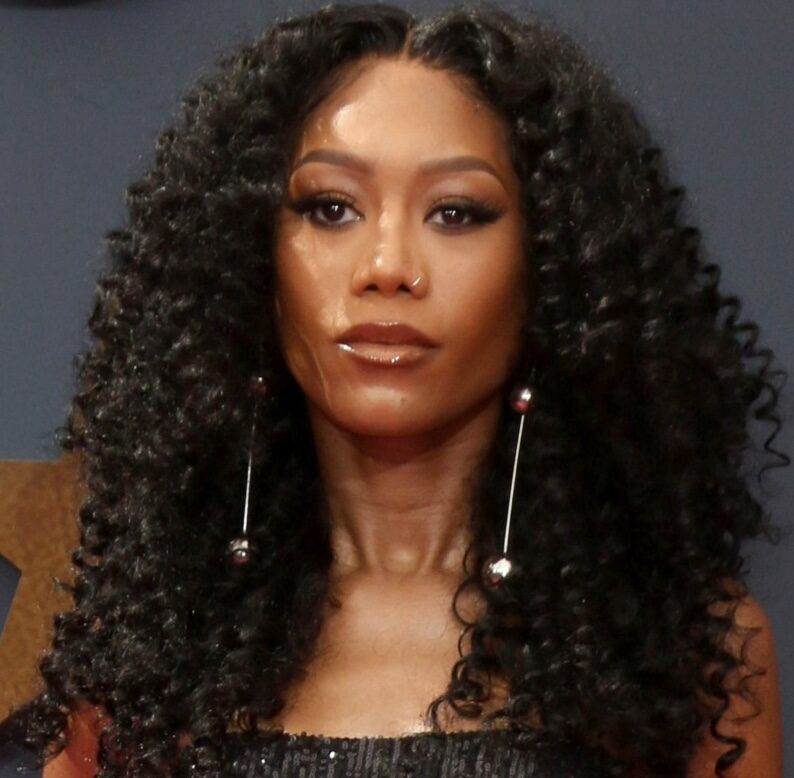Muni Long has rapidly risen to fame after pivoting from a songwriter to a singer.”But behind the scenes, Muni was facing severe personal challenges. In August, she released her new album, Revenge. During an appearance on The Terrell Show she opened up about the deeply personal experiences that inspired her recent music, particularly the title track, “Revenge,” domestic violence.
“This is the first time I’m writing about what I’m actually going through right now; it’s very cathartic,” Muni shared. “Part of my motivation here is being diagnosed with lupus. A lot of Black women, women, but specifically Black women, get diagnosed with autoimmune disorders because we suppress a lot of things.
The ‘strong Black woman’ trope is actually very toxic, and we should talk about our feelings. We should talk about what we’re going through.
“One song that just evokes a lot of emotion is the title track, ‘Revenge,’ because I talk about some domestic violence in the bridge. I don’t think a lot people understand that I’ve been through a lot, and I don’t talk about it,” Muni said.
“Muni disclosed that she was experiencing domestic violence while trying to embrace her success in the R&B world. When asked about the role of faith during these tough times, Muni shared how challenging it was to navigate her struggles while being told to pray.
“A lot of times, organized religion and old-school thinking will have you in bondage to some very misogynistic beliefs and ideals. And so, a man can do wrong a million times, and you should forgive him because that is the blank thing to do, right? It’s the right thing to do. It’s the Christian thing to do, it’s the feminine thing to do, it’s the wife thing to do, right?”
“But what about all this stress and drama and all that whatever, and him knocking me upside my [head]?
“How much of that should I take before a grown-up realizes I’m out of control and need help? There’s only so much you can do for somebody who doesn’t see the error in their ways. I was a little bit embarrassed that it was happening to me.”
“Muni continued, “I present myself as this very strong [person], which I am, but when you got somebody that’s like 200 pounds coming at you, it’s nothing you can do, you know? If you want to leave, they follow you. It’s very nasty. I don’t wish it on anyone. It’s not that I didn’t want to leave, but the way my life was set up, you don’t expect the love of your life to turn into your enemy.”
“Muni elaborated on the challenges she faced in getting proper support and acknowledgment for her domestic violence experiences from people in her personal life. She highlighted how her abuser skillfully crafted and maintained a specific image, all while neglecting the responsibility of genuinely embodying the persona that others believed.”
“As a mother of one, Muni was determined to change her circumstances. She planned to become a successful singer to escape.
She said, “I just knew no one was coming to save you. I walked down the aisle, so I’m gonna have to figure out how to get up out of this.”
“Viewers likely felt a sense of relief when Muni said, “I’m out of it. I’m free.” She bravely escaped her domestic violence situation and pushed forward, using her music as a personal diary. At the same time, she raised awareness and became an inspiration for domestic violence survivors everywhere.”
During her chat with Terrell, Muni shared that she hasn’t experienced any lupus flare-ups since leaving the toxic environment. This should make us consider how much our surroundings affect our health and well-being.
“Muni’s journey is a powerful testament to prioritizing your physical and mental well-being. Her resilience is truly commendable, and we hope her story inspires other survivors of domestic violence to find their paths to safety. Even if you haven’t experienced domestic violence yourself, it’s essential to believe and support those who have. Your understanding and compassion can make a real difference.
If you or someone you know is experiencing domestic violence, please call the National Domestic Violence Hotline at (800)-799-7233 or text START to 88788.
